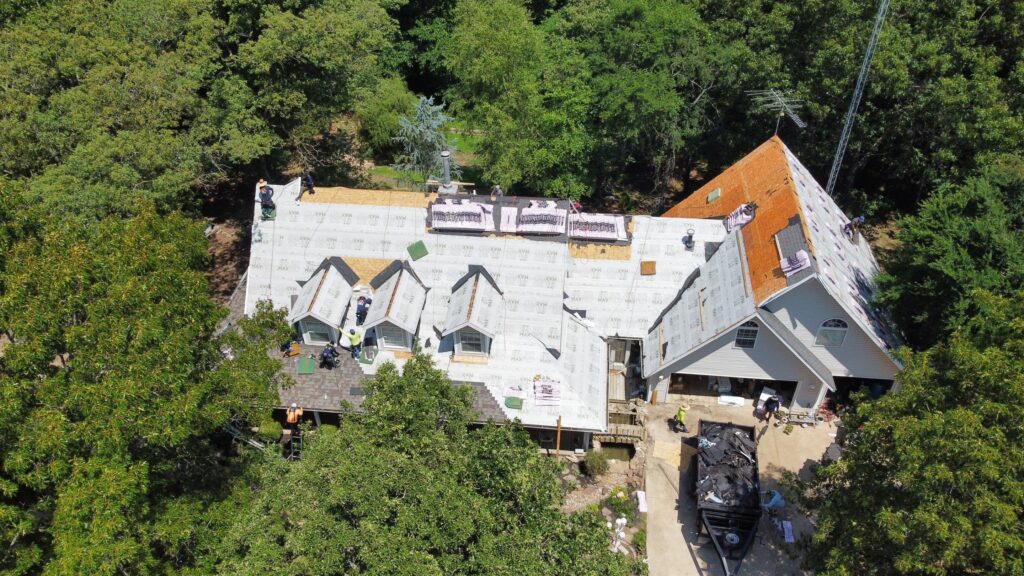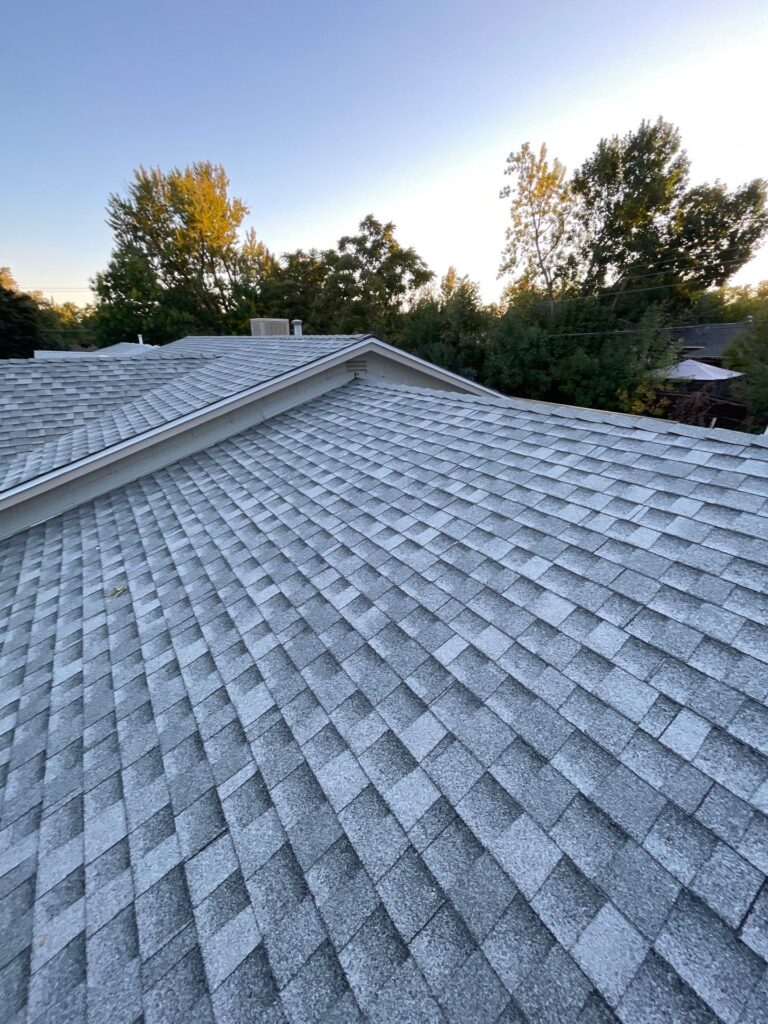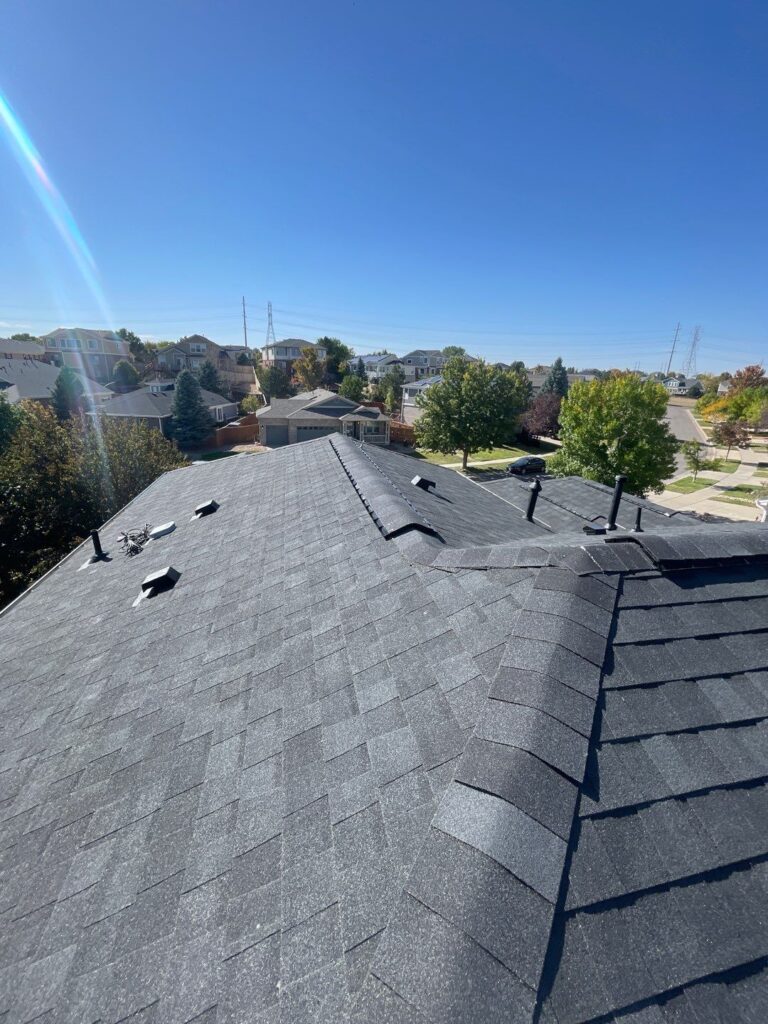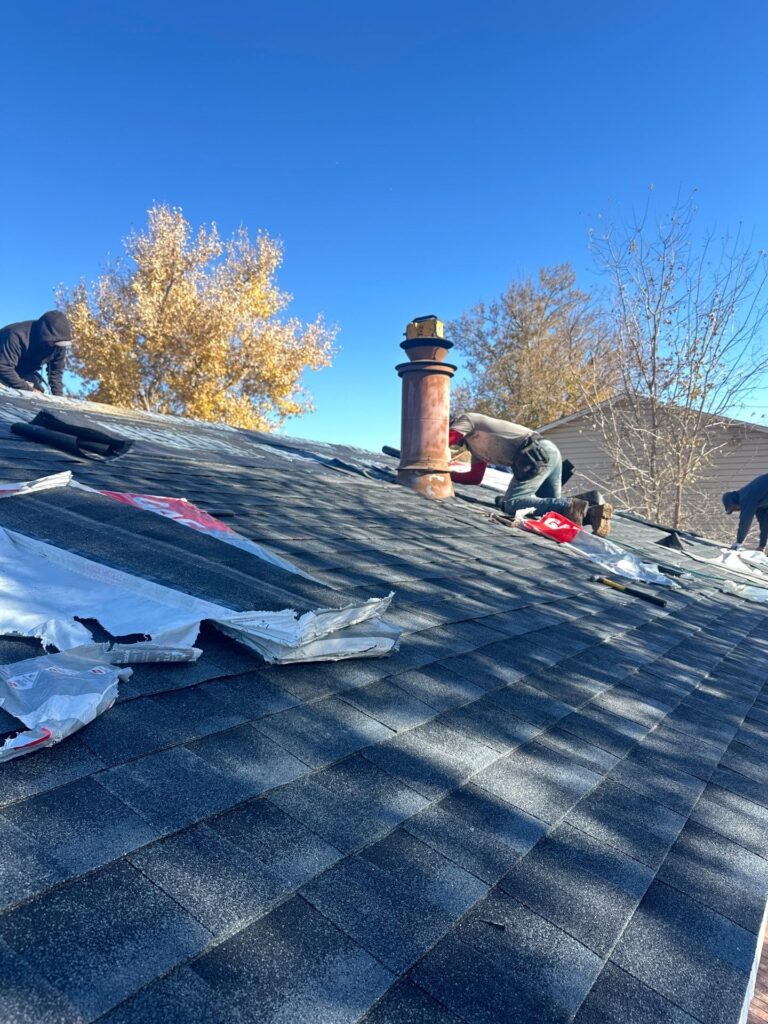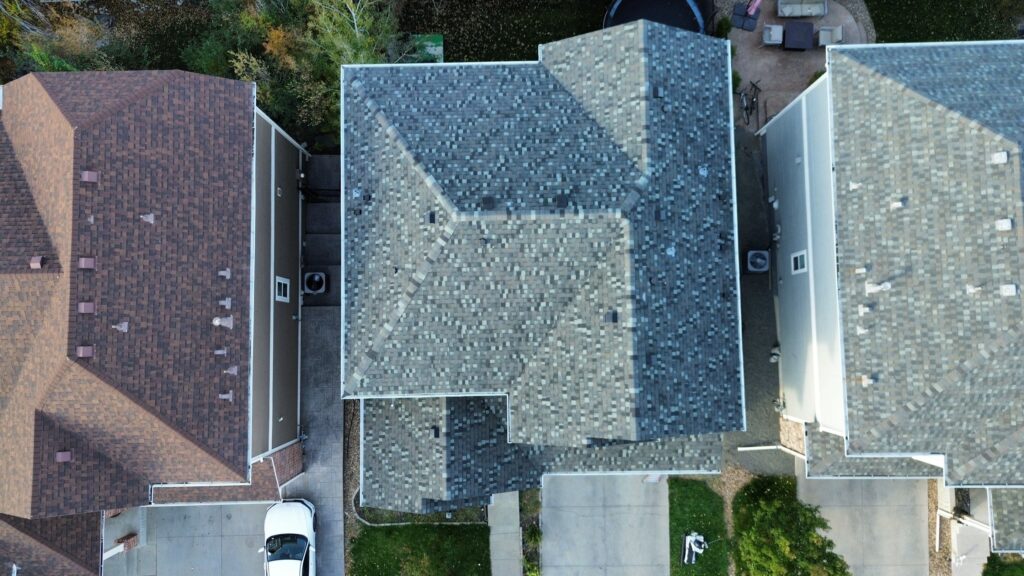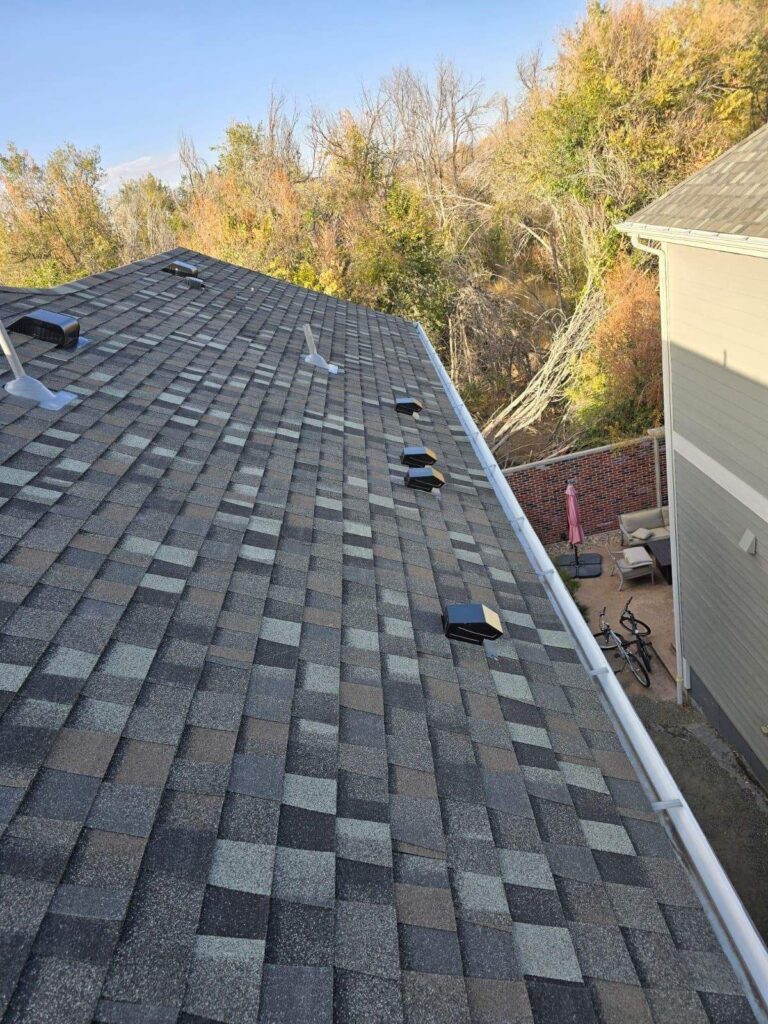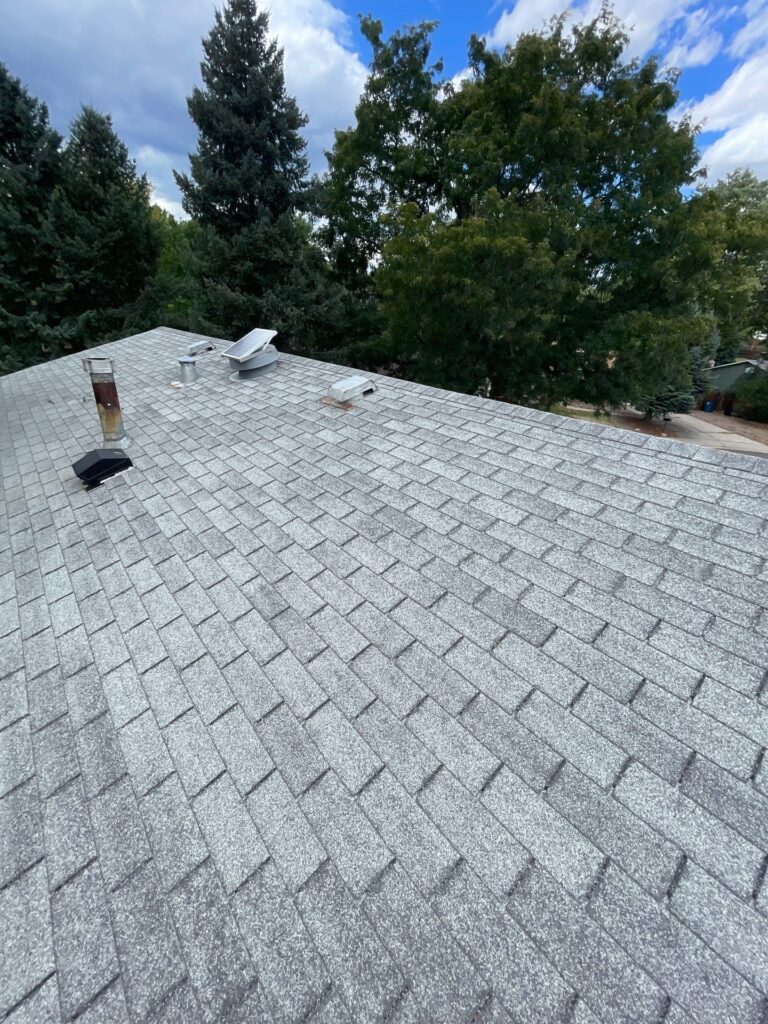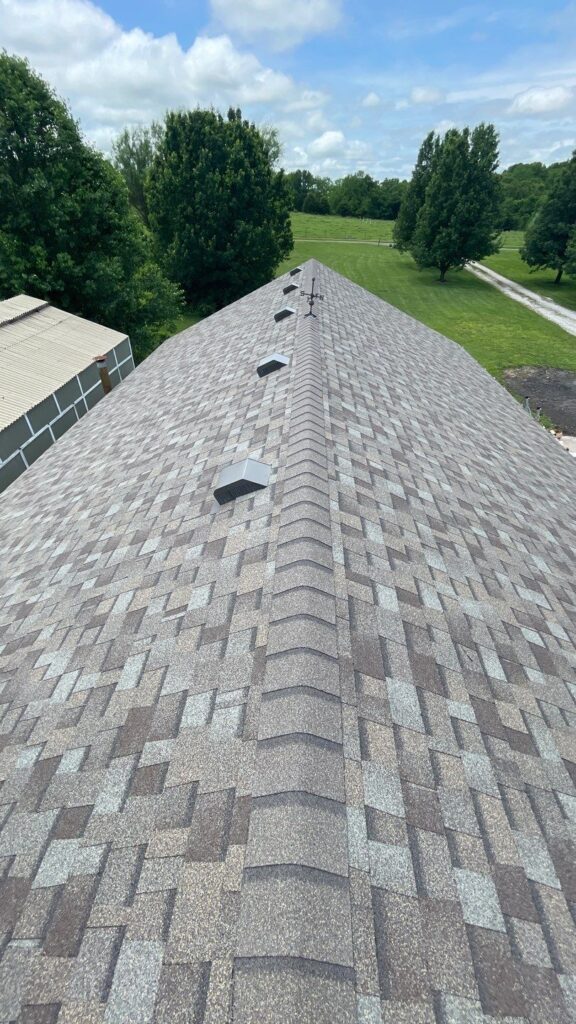The Hail Keeps Falling and Roof Repair Costs Continue to Rise
Understanding the Impact of Hailstorms on Denver Roofing
The Front Range of Colorado, particularly Denver, experiences some of the most severe hailstorms in the nation, commonly referred to as “Hail Alley.” These relentless storms pose significant challenges to property owners and roofing systems. Hailstorms can cause extensive damage to roofs, leading to costly repairs and replacements. For Denver residents, understanding the risks and staying prepared is crucial.
Why Hailstorm Damage Is a Major Concern for Denver Roofs
Hailstones can range in size from small pellets to golf-ball-sized ice chunks. The larger the hailstone, the more destructive its impact can be on roofs, often causing:
- Shingle Cracking and Granule Loss: Asphalt shingles are particularly vulnerable to granule erosion, which exposes the underlying layers to UV damage and water infiltration.
- Dents in Metal Roofing: While durable, metal roofs can suffer from visible dents that weaken their structural integrity.
- Leaks and Water Damage: Even minor roof damage can lead to leaks, causing moisture buildup and mold growth within the home.
Denver roofers must contend with these issues frequently, given the area’s susceptibility to recurring hail events.
The Rising Costs of Roof Repairs and Insurance Challenges
Roofing costs in Denver have risen steadily due to increasing material prices, labor shortages, and frequent claims from hail damage. While insurance policies cover most hailstorm-related repairs, property owners face:
- Higher Deductibles: Insurers often impose higher deductibles for hail-prone areas, leaving homeowners with significant out-of-pocket expenses.
- Extended Claims Processes: The influx of claims after major storms often results in delays in processing and approving repairs.
- Policy Adjustments: Frequent hailstorms lead to stricter insurance terms, making comprehensive coverage harder to secure.
Property owners must weigh these financial realities when evaluating roof repairs or replacements.
Proactive Roof Maintenance: Key to Mitigating Hail Damage
To minimize the impact of hailstorms, proactive roof maintenance is essential. Here are actionable steps Denver residents can take:
- Schedule Regular Inspections: Certified roofers in Denver recommend biannual inspections to identify vulnerabilities before storms hit.
- Invest in Impact-Resistant Materials: Consider upgrading to Class 4 impact-resistant shingles or metal roofing systems, which are designed to withstand hail damage.
- Clean and Maintain Gutters: Clear gutters prevent water backup and reduce the risk of leaks during heavy rains accompanying hailstorms.
By implementing these measures, homeowners can extend their roof’s lifespan and reduce repair costs.
Choosing the Right Roofing Company in Denver
When it comes to hail damage repairs, selecting a reliable roofing company in Denver is crucial. Homeowners should look for:
- Experience in Storm Damage Repair: Skilled Denver roofers understand the unique challenges of hail-prone regions.
- Transparent Pricing: Clear estimates and no hidden costs ensure confidence in the repair process.
- High-Quality Materials: Opt for companies that use durable, industry-certified roofing materials.
Tried and True Roofing, based in Denver, Colorado, is an example of a local roofing company equipped to handle hail-related challenges with professionalism and expertise.
Conclusion
The persistent threat of hailstorms in Denver underscores the importance of robust roofing systems and proactive maintenance. By partnering with experienced roofers in Denver and investing in high-quality materials, property owners can safeguard their homes against nature’s relentless forces. Prepare now to avoid costly surprises in the future.
The Hail Keeps Falling and Roof Repair Costs Continue to Rise Read More »


